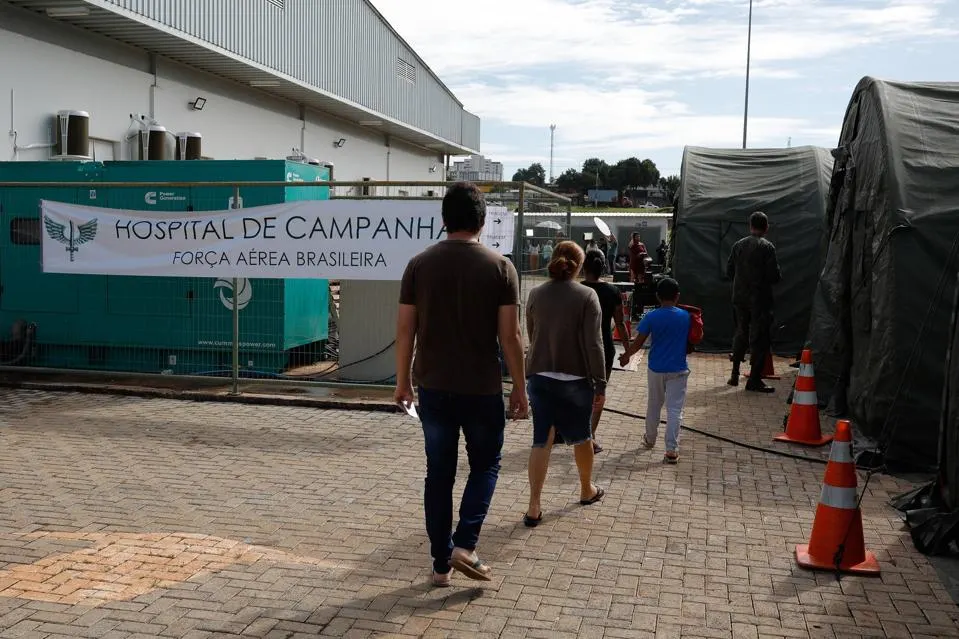- Home
- Billionaires
- Investing Newsletters
- 193CC 1000
- Article Layout 2
- Article Layout 3
- Article Layout 4
- Article Layout 5
- Article Layout 6
- Article Layout 7
- Article Layout 8
- Article Layout 9
- Article Layout 10
- Article Layout 11
- Article Layout 12
- Article Layout 13
- Article Layout 14
- Article Sidebar
- Post Format
- pages
- Archive Layouts
- Post Gallery
- Post Video Background
- Post Review
- Sponsored Post
- Leadership
- Business
- Money
- Small Business
- Innovation
- Shop
Recent Posts
Brazil Tackles Dengue Outbreak Ahead of Carnival

Since the beginning of the year, Brazil has been grappling with a severe outbreak of dengue fever, with hundreds of thousands of cases reported across the country. As public health officials scramble to contain the spread of the mosquito-borne disease, emergency measures are being implemented, including the opening of new hospitals and the launch of a mass vaccination campaign just days before the nation gears up for its vibrant Carnival celebrations.
According to reports from the Brazilian Health Ministry, a staggering total of 364,855 cases of dengue have been confirmed so far this year, resulting in 40 confirmed deaths, with an additional 240 fatalities under investigation. The situation is particularly dire in Rio de Janeiro, where approximately 25,000 cases have been detected. With the Carnival festivities looming on the horizon, concerns are mounting as an estimated 100,000 people are expected to flock to the city per day during the celebrations.
In response to the escalating crisis, the Brazilian Health Ministry has sprung into action, setting up 10 new care centers specifically dedicated to treating dengue patients in Rio de Janeiro. Additionally, preventative measures such as cordoning off mosquito-infested properties and employing smoke to drive away the insects are being implemented in an effort to curb further transmission.
The outbreak has prompted several states, including Minas Gerais, Acre, Goias, and the capital city of Brasilia, to declare states of emergency. In Brasilia, the Brazilian Air Force has established a field hospital in Ceilandia, a densely-populated suburb, to provide much-needed medical support to affected communities.
Amidst the crisis, the Brazilian government has initiated a massive vaccination campaign utilizing Qdenga, a dengue vaccine that has recently gained regulatory approval in select regions. While the vaccine has been endorsed for use in the European Union, the U.K., and Brazil, it has yet to receive approval from the FDA in the United States. The Brazilian Ministry of Health has procured 6.5 million doses of the vaccine for 2024 and has ordered an additional 9 million doses for 2025. However, challenges remain as the vaccine requires two doses administered over a three-month period, and the supply chain may struggle to meet the demand.
Dengue fever, caused by a virus transmitted through mosquito bites, poses a significant public health threat globally, infecting an estimated 400 million people each year and resulting in approximately 40,000 deaths, according to the Centers for Disease Control. Alongside Zika and chikungunya, dengue is a vector-borne disease that can spread rapidly, particularly in densely populated areas and during large gatherings like Carnival.
The World Health Organization warns that infected individuals can unknowingly transmit the virus to mosquitoes up to two days before exhibiting symptoms, exacerbating the challenge of containment. While only a fraction of those infected will develop severe symptoms such as nausea, vomiting, and internal bleeding, the potential for widespread transmission remains a concern.
Despite its prevalence in regions with tropical climates, dengue fever is not common in the United States. However, isolated cases have been reported in states such as Arizona and Florida, underscoring the global nature of the disease and the importance of vigilance in monitoring and controlling its spread.
As Brazil braces itself for the impending Carnival festivities amidst the dengue outbreak, public health officials and authorities are working tirelessly to mitigate the impact of the crisis and safeguard the health and well-being of the population. With emergency measures in place and a vaccination campaign underway, the nation remains resolute in its battle against this formidable threat.
Recent Posts
Categories
- 193cc Digital Assets2
- 5G1
- Aerospace & Defense46
- AI37
- Arts3
- Banking & Insurance11
- Big Data3
- Billionaires477
- Boats & Planes1
- Business328
- Careers13
- Cars & Bikes76
- CEO Network1
- CFO Network17
- CHRO Network1
- CIO Network1
- Cloud10
- CMO Network18
- Commercial Real Estate7
- Consultant1
- Consumer Tech180
- CxO1
- Cybersecurity68
- Dining1
- Diversity, Equity & Inclusion4
- Education7
- Energy8
- Enterprise Tech29
- Events11
- Fintech1
- Food & Drink2
- Franchises1
- Freelance1
- Future Of Work2
- Games141
- GIG1
- Healthcare78
- Hollywood & Entertainment186
- Houses1
- Innovation42
- Investing2
- Investing Newsletters4
- Leadership65
- Lifestyle11
- Manufacturing1
- Markets20
- Media193
- Mobile phone1
- Money13
- Personal Finance2
- Policy567
- Real Estate1
- Research6
- Retail1
- Retirement1
- Small Business1
- SportsMoney33
- Style & Beauty1
- Success Income1
- Taxes2
- Travel10
- Uncategorized8
- Vices1
- Watches & Jewelry2
- world's billionaires446
Related Articles
What Healthcare Can Learn from Nvidia’s Success
The tech industry is undergoing a seismic transformation, with two of its...
By 193cc Agency CouncilDecember 16, 2024Salmonella Triggers Recalls of Costco Eggs and Cucumbers
The recent salmonella outbreak has prompted the recall of two major food...
By 193cc Agency CouncilNovember 30, 2024Bird Flu Found in Raw Milk in California, Recall Issued
California health authorities have confirmed the presence of the bird flu virus...
By 193cc Agency CouncilNovember 25, 2024UniDoc Health Launches Mobile ‘Health Cube’ for Remote Care
UniDoc Health, a Vancouver-based company, is revolutionizing healthcare accessibility with the launch...
By 193cc Agency CouncilNovember 23, 2024















Leave a comment